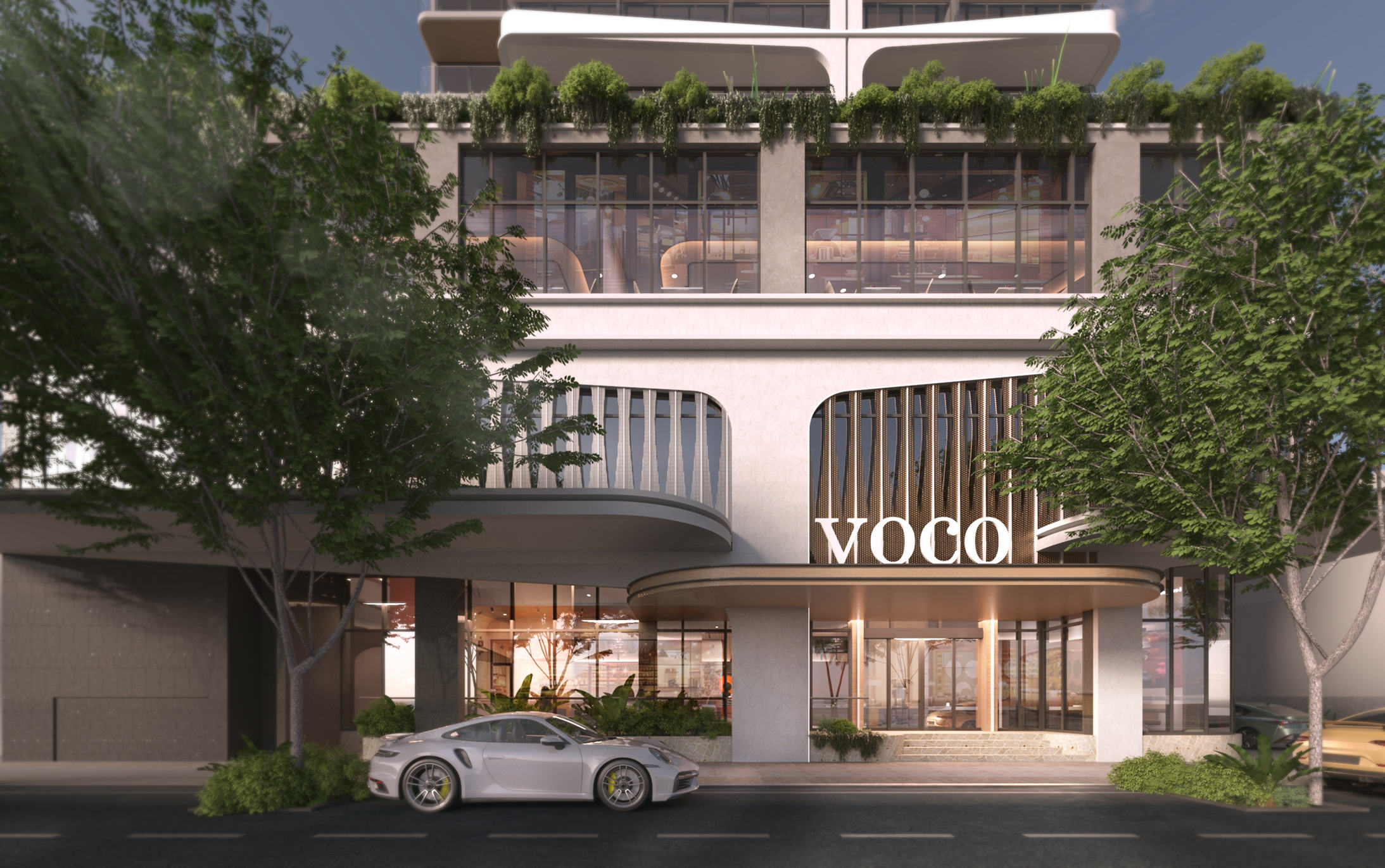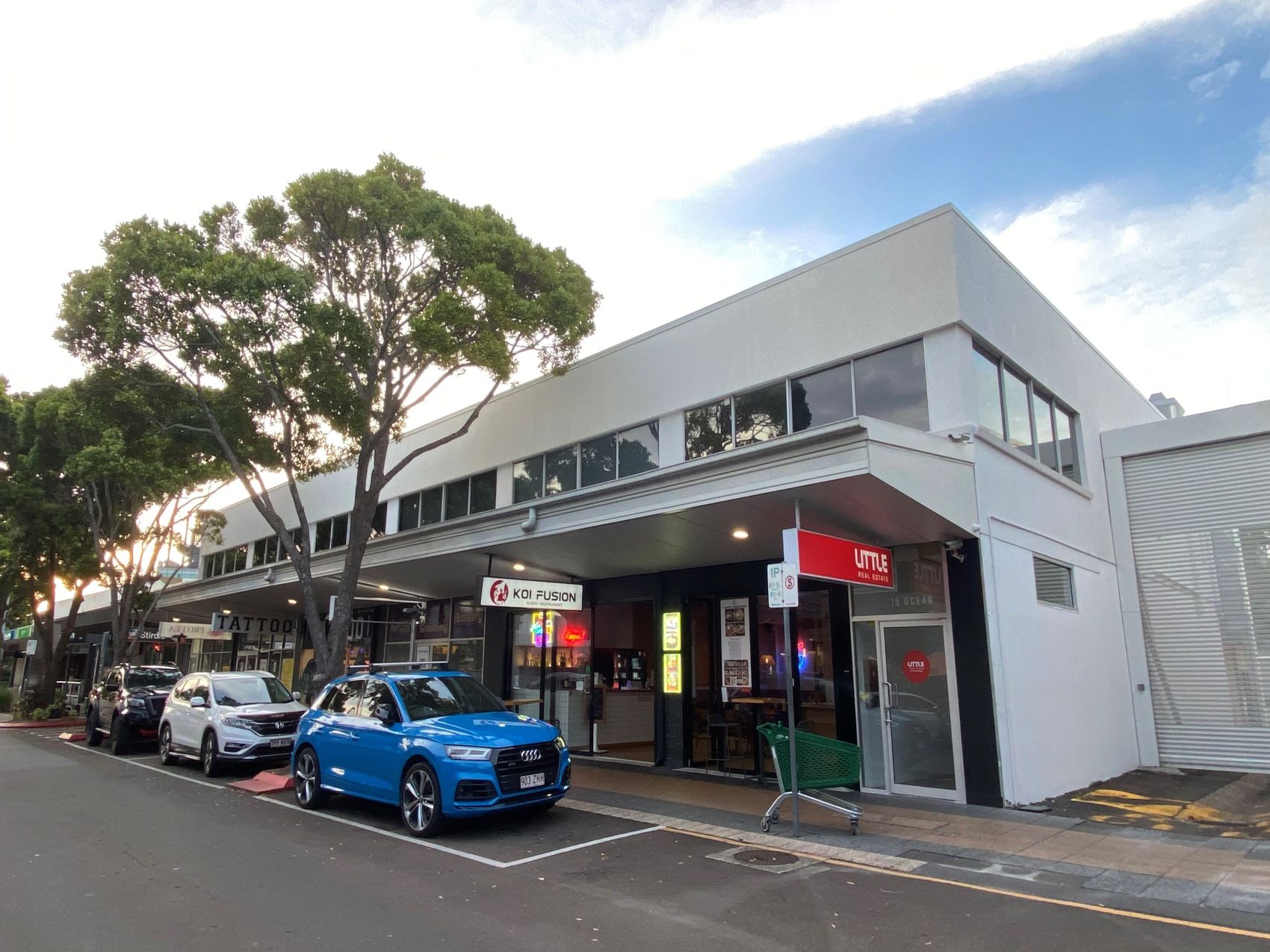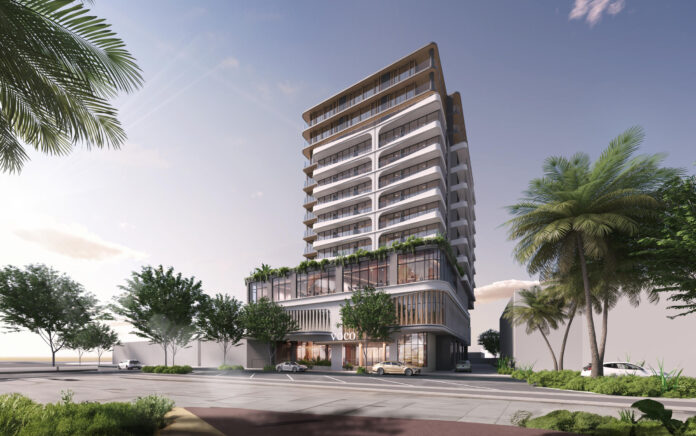The developer of a proposed 13-storey hotel and mixed-used development on the Sunshine Coast is moving into position to make use of a pre-Olympic temporary height relaxation.
An application by Felix Capital to build 153 units plus restaurants, a function room and nine residential units on a site on Ocean Street, Maroochydore, has been put on hold pending ministerial approval of a Temporary Local Planning Instrument.
The TLPI, which was passed by the Sunshine Coast Council on November 21, offers a height relaxation of up to seven metres, as well as parking relaxations, for luxury hotels built in certain strategic locations on the Coast in the lead-up to the 2032 Olympics.
The application for the Ocean Street hotel, which at 47 metres will be seven metres higher than allowed under the planning scheme, was lodged 10 days before the council approved the TLPI, but after other elements of a hotel incentive package were passed at a previous meeting.
A planning report submitted with the voco hotel application refers to a seven-metre height relaxation that would be offered by the TLPI.
“Once adopted, the proposed development will comply in full with the local government planning provisions for building height on the subject site (47 metres high permitted onsite under the TLPI),” the report says.

Town planners acting for Felix Capital put a “stop” on the application on December 4, pausing the council’s application assessment process for up to 130 days.
Felix Capital director Michael Maroun confirmed the firm was waiting to see if the Planning Minister, Jarrod Bleijie, would approve the council’s TLPI.
“The reason we stopped it is because the TLPI now got approved (by the council) and is awaiting the State Minister to sign it off,” he said.
“Once he does that we are then going to relodge it as code assessable, this way it is all compliant. Just a planning thing.”
The shift from impact assessable to code assessable would mean the application would not need to go through a public notification period and be open to formal submissions.
Division 8 councillor Taylor Bunnag highlighted the difference between code and impact assessable applications to fellow councillors at the November 21 council meeting, with a question comparing a hotel application lodged under the TLPI with one lodged under the planning scheme.
“We’ve got two potential developments across the road from each other. One would be code assessable, in that you wouldn’t be able to have any appeal rights as a resident, and then across the road one would be impact accessible and you would be able to have your appeal rights and have your say formally. Is that an accurate description of what the situation might be like?” he asked of planning amendment coordinator Roma Stevenson.
“Yes, that’s correct,” Ms Stevenson said.
Cr Bunnag, speaking against the TLPI, said it was important that residents could have a say on developments that had an impact on the character and amenity of the area.
“For me, that’s the kicker. Giving people not only the opportunity to have their say or to exercise their appeal rights on developments in their area is of critical importance to my community and a principle I’ll be upholding,” he said.

The Organisation Sunshine Coast Association of Residents has written to the Planning Minister requesting he refuse TLPI, saying it does not align with Section 23 of the Planning Act because there is no urgent or emerging need for upscale hotels.
Under Section 23, a TLPI can be made if there is a risk of serious adverse cultural, economic, environmental and social conditions, and a delay in amending the planning scheme would increase the risk, and it would not adversely affect state interests.
OSCAR argues that the council has had time to deal with any need for upscale hotels during the past three years and “any suggestion that delays involved in amending the PS would increase the risk is limited, given no hotel incentive package action was undertaken during the last two amendment processes which have been implemented”.
OSCAR also makes argument against the TLPI on other grounds, including the effect of sky glow from tall buildings on sea turtles and pressure on local parking.





